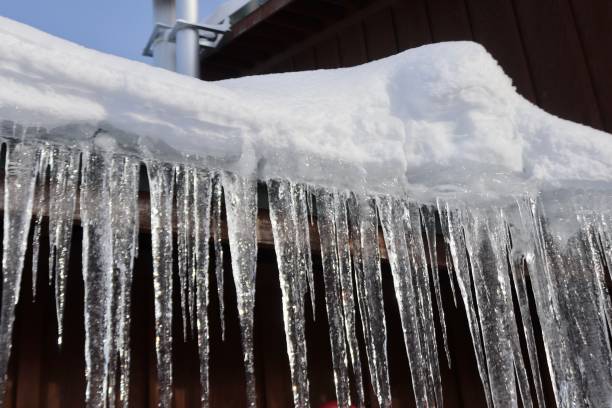How to Defend Your Pipes from Cold Weather: Professional Tips
How to Defend Your Pipes from Cold Weather: Professional Tips
Blog Article
Have you been in search of advice around 6 Ways to Prevent Frozen Pipes?

Cold weather can wreak havoc on your plumbing, particularly by freezing pipes. Here's exactly how to avoid it from occurring and what to do if it does.
Introduction
As temperatures drop, the risk of icy pipelines rises, possibly causing expensive repair work and water damage. Understanding just how to avoid frozen pipelines is critical for house owners in chilly environments.
Avoidance Tips
Insulating at risk pipes
Cover pipelines in insulation sleeves or use warm tape to protect them from freezing temperature levels. Focus on pipelines in unheated or exterior locations of the home.
Heating strategies
Maintain interior areas appropriately heated up, especially locations with pipes. Open up cupboard doors to allow warm air to flow around pipelines under sinks.
How to determine icy pipelines
Seek lowered water flow from taps, uncommon odors or noises from pipelines, and noticeable frost on revealed pipelines.
Long-Term Solutions
Architectural adjustments
Consider rerouting pipes away from exterior wall surfaces or unheated locations. Include added insulation to attic rooms, basements, and crawl spaces.
Upgrading insulation
Invest in top quality insulation for pipes, attic rooms, and wall surfaces. Appropriate insulation helps keep regular temperatures and reduces the threat of icy pipes.
Shielding Outdoor Plumbing
Garden hoses and exterior faucets
Separate and drain yard pipes before winter months. Install frost-proof faucets or cover outdoor taps with insulated caps.
Understanding Icy Pipelines
What triggers pipes to ice up?
Pipes ice up when revealed to temperatures listed below 32 ° F (0 ° C) for extended periods. As water inside the pipelines freezes, it increases, putting pressure on the pipe wall surfaces and possibly creating them to burst.
Threats and problems
Frozen pipelines can cause water interruptions, home damages, and costly fixings. Ruptured pipelines can flooding homes and cause comprehensive structural damage.
Indications of Frozen Pipes
Recognizing icy pipelines early can stop them from breaking.
What to Do If Your Pipes Freeze
Immediate actions to take
If you suspect icy pipes, keep taps available to eliminate pressure as the ice thaws. Utilize a hairdryer or towels soaked in warm water to thaw pipes gradually.
Final thought
Avoiding icy pipes calls for proactive actions and quick actions. By understanding the reasons, signs, and preventive measures, home owners can safeguard their pipes throughout cold weather.
Helpful Tips to Prevent Frozen Pipes this Winter
UNDERSTANDING THE BASICS: WHY PIPES FREEZE AND WHY IT’S A PROBLEM
Water freezing inside pipes is common during the winter months, but understanding why pipes freeze, and the potential problems it can cause is crucial in preventing such incidents. This section will delve into the basics of why pipes freeze and the associated problems that may arise.
THE SCIENCE BEHIND FROZEN PIPES
When water reaches freezing temperatures, it undergoes a physical transformation and solidifies into ice. This expansion of water as it freezes is the primary reason pipes can burst. As the water inside the pipe freezes, it expands, creating immense pressure on the walls. If the pressure becomes too great, the pipe can crack or rupture, leading to leaks and water damage.
FACTORS THAT CONTRIBUTE TO PIPE FREEZING
Low Temperatures: Extremely cold weather, especially below freezing, increases the risk of pipes freezing. Uninsulated or Poorly Insulated Pipes: Pipes located in unheated areas, such as basements, crawl spaces, or attics, are more prone to freezing. Insufficient insulation or lack of insulation altogether exacerbates the problem. Exterior Wall Exposure: Pipes running along exterior walls are susceptible to freezing as they encounter colder temperatures outside. Lack of Heating or Temperature Regulation: Inadequate heating or inconsistent temperature control in your home can contribute to frozen pipes. PROBLEMS CAUSED BY FROZEN PIPES
- Pipe Bursting: As mentioned earlier, the expansion of water as it freezes can cause pipes to burst, resulting in significant water damage.
- Water Damage: When pipes burst, it can lead to flooding and water damage to your property, including walls, ceilings, flooring, and personal belongings.
- Structural Damage: Prolonged exposure to water from burst pipes can compromise the structural integrity of your home, leading to costly repairs.
- Mold and Mildew Growth: Excess moisture from water damage can create a favorable environment for mold and mildew growth, posing health risks to occupants.
- Disrupted Water Supply: Frozen pipes can also result in a complete or partial loss of water supply until the issue is resolved.
WHY CERTAIN PIPES ARE MORE PRONE TO FREEZING
- Location: Pipes located in unheated or poorly insulated areas, such as basements, crawl spaces, attics, or exterior walls, are at higher risk of freezing.
- Exterior Pipes: Outdoor pipes, such as those used for irrigation or exposed plumbing, are particularly vulnerable to freezing as they are directly exposed to the elements.
- Supply Lines: Pipes that carry water from the main water supply into your home, including the main water line, are critical to protect as freezing in these lines can affect your entire plumbing system.
- Underground Pipes: Pipes buried underground, such as those connected to sprinkler systems or outdoor faucets, can be susceptible to freezing if not properly insulated.
https://busybusy.com/blog/helpful-tips-to-prevent-frozen-pipes-this-winter/

I hope you liked our part about Preventing and dealing with frozen pipes. Thank you for finding the time to read through our piece of content. Sharing is good. One never knows, you may just be helping someone out. I thank you for your readership.
Click Here Report this page